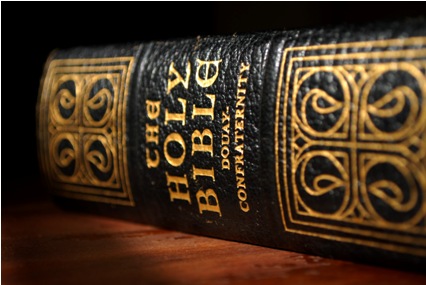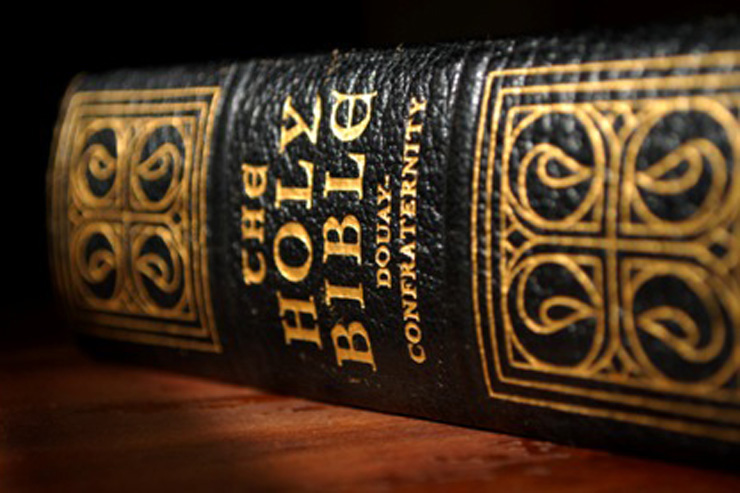Several years ago, the Catholic Church designated the Sunday after Easter as “Divine Mercy Sunday.” That raises two very important questions – what exactly is “mercy” anyway, and what does it have to do with the Easter season?
Mercy is not just pity. Neither is it simply sparing someone the punishment that they deserve. No, mercy can be defined as love’s response to suffering. When mercy encounters suffering, it ultimately seeks to alleviate it. God the Father is so “rich in mercy” (Ephesian 2:4) that Paul calls him “the Father of all mercies and the God of all comfort” (2 Corinthians 1:3).
Jesus is the perfect human image of the Father’s mercy. When he meets those suffering from hunger, he feeds them. When he encounters people suffering from physical sickness, he heals them. But true mercy is not superficial, but truly radical. And Jesus recognizes that the deepest suffering in human life, the root cause of all other suffering, is sin. Sin debases us, robbing us of our dignity, weakening and even rupturing our connection with the source of our life, namely, God, our loving Father. Sin, then, is not just a transgression of some arbitrary law. No, it creates a wound in us that can fester and, if left unattended, corrupt us entirely. It gives the Prince of Darkness a foothold in our hearts which he then tries to use to gain complete control of our lives. True mercy seeks to alleviate this deeper suffering that can potentially lead to eternal suffering.
It was to address this most profound of all wounds that Jesus gave up his life. And the risen Christ instituted the sacrament of penance to apply the medicine of mercy, won on Calvary, to each individual sinner at the moment of their deepest need.
Wait a minute. So Jesus, not the Church, established this sacrament? Where does the Bible say he did that? Right there, in John’s gospel, on Easter Sunday afternoon. Despite the locked doors, he stands amidst the apostles and says “As the Father has sent me, so I send you.” Jesus is the original “apostle” of the Father – the word means “one who is sent.” As he was sent on a mission of mercy, so he sends out his “apostles” on the same mission. He breathes on them and says “Receive the Holy Spirit. If you forgive men’s sins, they are forgiven them; if you hold them bound, they are held bound” (John 20:19-22).
Do you have a problem with the Church intruding on what you think ought to remain between just you and God? You’ll have to take that up with Jesus. It was his idea. From the looks of this text, he gave the apostles and their successors, whom we call bishops, a great deal of authority in this matter. But he also gave them a great deal of spiritual power. The same Holy Spirit, who was responsible for bringing order out of chaos (Gen 1) and causing a virgin to conceive, is breathed upon the apostles by the Risen Christ. He is the Spirit of Mercy, the Spirit of healing, the Spirit of liberation and resurrection.
This means that going to confession is about more than an appointment with some official of the institutional church. It is rather an encounter with a man who has been anointed with the Spirit of Mercy to stand in the place of Christ (in persona Christi) and serve as an instrument of the divine physician. True, this instrument is a sinner who is himself in need of mercy, much like Peter and Doubting Thomas. But he is nonetheless an instrument of God’s healing and merciful love. That is the case whether or not he is a wise counselors or exhibits exceptional holiness of life.
The Spirit that Christ breathed on the apostles on the first Easter afternoon has been passed on to bishops and priests through the sacrament of Holy Orders. That means that Jesus Christ is the one who comes to meet you in the sacrament of penance and reconciliation. And he comes not just to forgive, but also to heal, to liberate, strengthen and transform.
His merciful love means that he did not die simply to “cover our sins” and wipe them off God’s record book, leaving us the same miserable creatures we’d always been. No, his mercy kills the infection, heals the wound, and breaks the bonds.
In the sacrament of reconciliation, Jesus invites me, like he did Lazarus, to come out of the place of darkness and decay. And he says to his priestly confessors the same thing he said to the people standing around Lazarus’s tomb: “unbind him, and let him go free!”
That’s divine mercy. I don’t know about you, but I want as much of it as I can get!
Editor’s Note: Reflection on the Mass readings for the Second Sunday of Easter (Year C) – Acts 5:12-16; Psalms 118:2-4, 13-15, 22-24; Revelation 1:9-11, 12-13, 17-19; John 20:19-31. This series for reflections on the coming Sunday Readings usually appears each Wednesday.
Dr. Marcellino D’Ambrosio writes from Texas. For his resources on parenting and family life or information on his pilgrimages to Rome and the Holy Land, visit www.crossroadsinitiative.com or call 1.800.803.0118. This article originally appeared in Our Sunday Visitor and is reproduced here by permission of the author.
Please post your comments and questions below. We value your feedback.
If you appreciate our writing, please use both the Share and Recommend buttons to tell your family and friends about this article. Help us help others live the faith throughout their day.
Thank you! – The Editors













